When Andry Rajoelina, President of Madagascar announced on that Ruphin Fortunat Zafisambo, a Divisional General would become the new prime minister, the capital Antananarivo erupted in fresh protests. The appointment came just one week after the president dissolved the cabinet of former premier Christian Ntsay, and it landed squarely in the middle of a three‑week‑long uprising sparked by chronic water and electricity shortages.
Background: From Government Dissolution to Street Unrest
The unrest began on when university students in Antananarivo took to the streets after a week of rolling blackouts left dormitories in darkness. Within days, the movement spread to Toamasina and Antsirabe, with young professionals and market vendors joining the march. Social‑media platforms, especially TikTok and Instagram, turned the protests into a Gen Z‑driven flashpoint, branding the demonstrations as a demand for "real change" rather than a simple call for better services.
According to the World Bank, World Bank data from 2022 showed that roughly 24 million of Madagascar’s 32 million residents live below the poverty line. Those numbers provide a stark backdrop to the anger over infrastructure failure – a problem that, in many eyes, reflects deeper mismanagement at the highest levels of government.
The Appointment: Who Is General Zafisambo?
General Zafisambo, a career officer who rose through the ranks of the Malagasy army, is best known for his command of the 5th Infantry Brigade in the highlands. His nickname among soldiers is "The Iron Hand," a moniker that now carries political weight. In his own words, delivered from the presidential palace’s balcony, he promised to "serve the people with integrity and swift action." The move signals a classic playbook: bring a trusted military figure into civilian leadership to project stability.
Critics argue that the appointment blurs the line between armed forces and elected governance, a concern amplified by reports that the president’s close adviser, businessman Mamy Ravatomanga, has leveraged his security firm, the Madagascar Security Academy, to quell dissent. Ravatomanga, often referred to as "the vice president" in local media, appeared on private TV channels the same evening to deny accusations that his company took part in the tear‑gas dispersal of protesters.
Reactions on the Ground: Youth Protests Intensify
On the day of the announcement, police fired tear gas at a crowd of roughly 800 demonstrators gathered outside the National Assembly. AFP reporters on the scene noted at least one injury – a young man with a scraped eye – and a growing sense that the crackdown only deepened resolve. The Gen Z movement issued a 48‑hour ultimatum, demanding Rajoelina’s resignation and warning, "As long as Andry Rajoelina remains in power, we will keep fighting."
University lecturer and protest spokesperson, whose name the authorities have kept under wraps for safety, told local radio, "We’re not against the army per se; we’re against a system that lets a handful of elites hoard resources while our taps run dry." The sentiment underscores a shift from isolated grievances to a broader call for political overhaul.
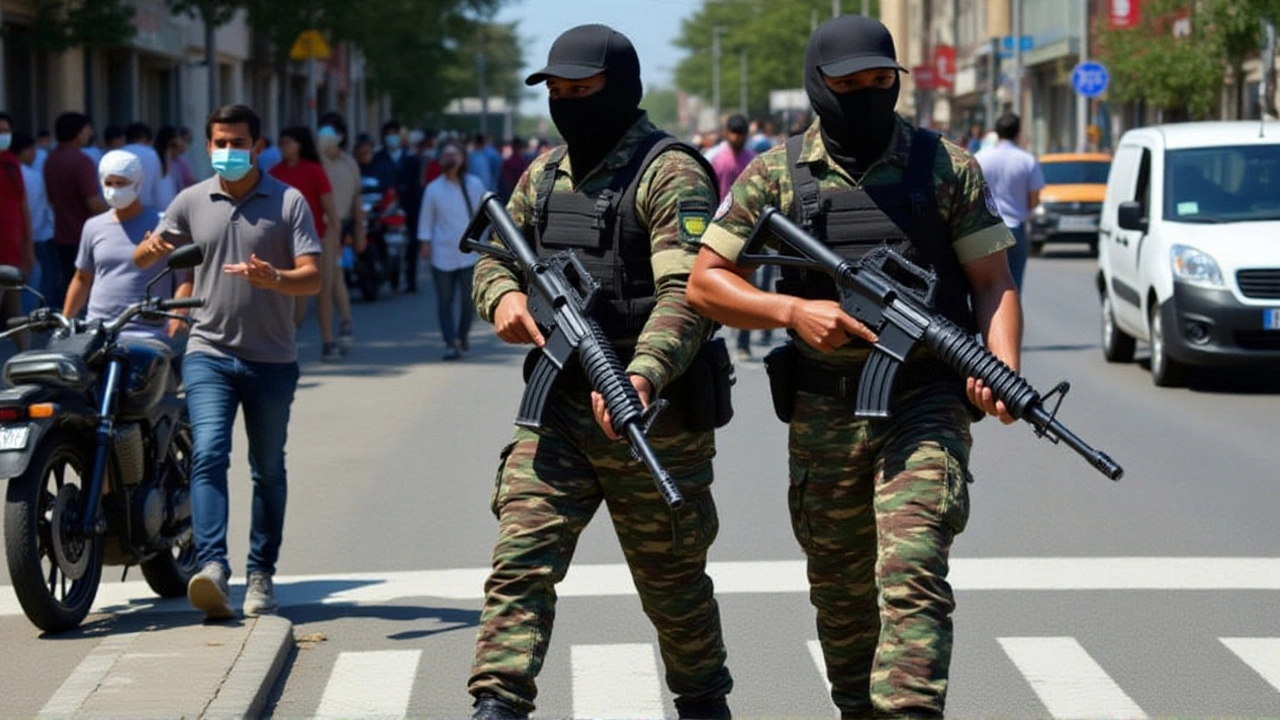
Political Stakes: Power, Patronage, and the Role of Security Forces
Rajoelina’s rhetoric painted the opposition as “political actors” intent on destabilising the nation. He argued that the new prime minister would help “save Madagascar” by streamlining decision‑making. Yet analysts from TRT Afrika point out that the president’s reliance on security apparatuses could embolden further authoritarian tendencies.
Moreover, the involvement of Ravatomanga adds a layer of patronage politics. His security company has been accused of receiving lucrative contracts worth millions of dollars, contracts many say were awarded without transparent bidding. If these allegations prove true, the appointment of a military prime minister could be seen as a move to protect those economic interests rather than address the systemic failures driving the protests.
What Comes Next? Scenarios for Madagascar’s Future
Three near‑term scenarios are emerging:
- Negotiated Transition: The government opens a dialogue with youth leaders, perhaps offering an interim technocratic cabinet that includes civilian experts alongside the military prime minister.
- Escalated Repression: Security forces receive new orders to disperse protests more aggressively, risking international condemnation and possible sanctions.
- Political Stalemate: Both sides remain entrenched, leading to a protracted crisis that could cripple the economy and deter foreign investment.
International observers, including the African Union, have warned that prolonged instability could spill over into the broader Indian Ocean region, affecting trade routes that pass near Madagascar’s ports.
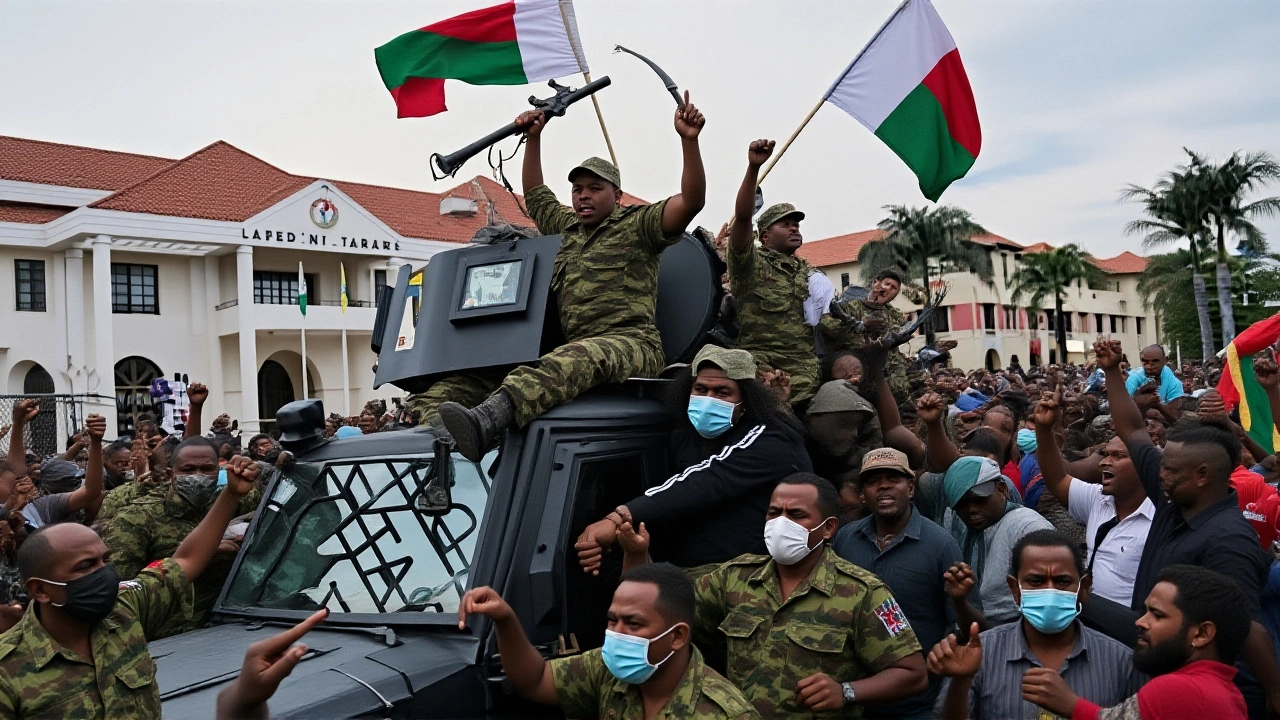
Key Facts
- Date of appointment:
- New prime minister: Ruphin Fortunat Zafisambo
- Former prime minister dismissed: Christian Ntsay
- Protests began:
- Population below poverty line (2022): ~75 % (World Bank)
Frequently Asked Questions
How does the appointment of General Zafisambo affect the ongoing protests?
For many demonstrators the move validates their claim that the government is leaning on the military to silence dissent. While the president argues the appointment brings stability, protest leaders say it deepens mistrust and may spur larger turnouts unless concrete reforms on water and electricity are delivered.
What are the main grievances behind the youth‑led movement?
The protests started over frequent power cuts and unreliable water supply, but have grown to include demands for an end to corruption, greater transparency in public contracts, and the resignation of President Rajoelina, whom many see as the chief architect of the country's economic woes.
Who are the key figures supporting President Rajoelina?
Besides General Zafisambo, the president counts on influential businessman Mamy Ravatomanga and his security firm, the Madagascar Security Academy, as well as loyalists within the army and state‑run media like TVM.
What could trigger an international response to the crisis?
If security forces resort to lethal force or if evidence emerges that the president is using the military to suppress legitimate dissent, regional bodies such as the African Union and donor nations may impose diplomatic pressure or suspend aid, especially given Madagascar’s reliance on foreign assistance for infrastructure projects.
What are the prospects for economic recovery amid the turmoil?
Economic recovery hinges on restoring basic services. Investors are watching closely; continued unrest could delay planned mining ventures and tourism, sectors that together account for over 10 % of Madagascar’s GDP. A swift, inclusive political settlement could unlock the World Bank’s upcoming development package.

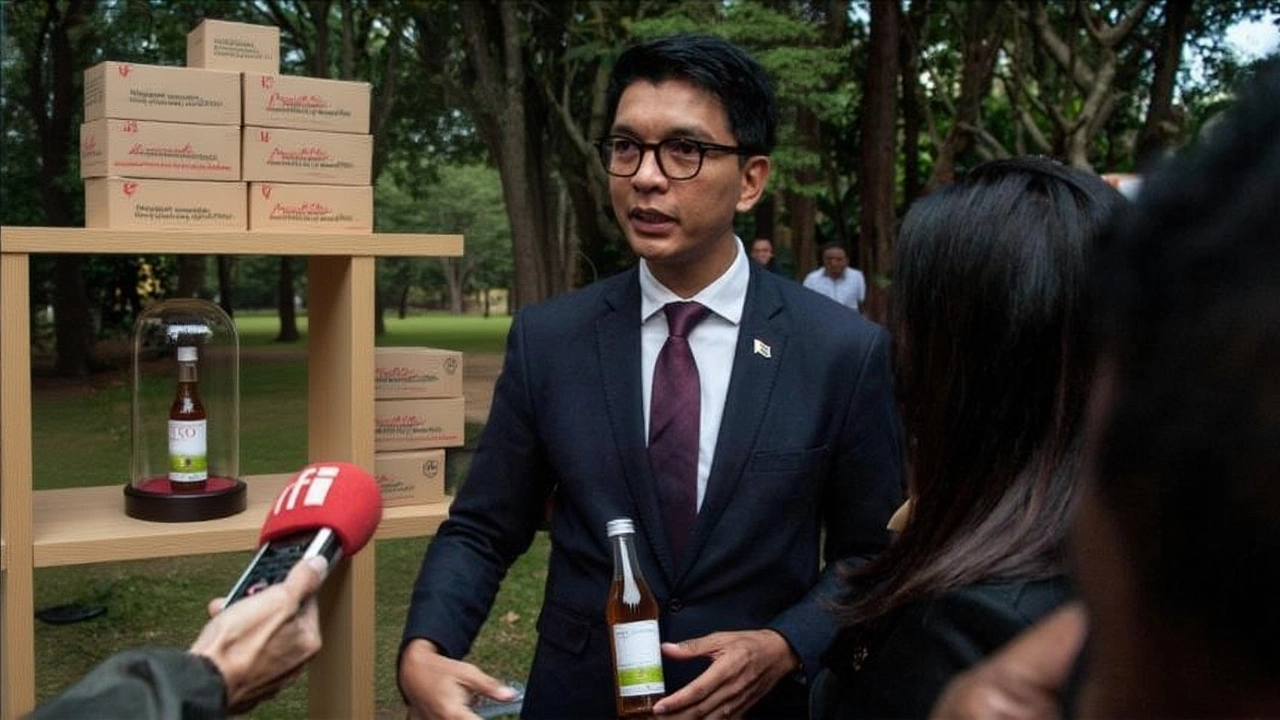
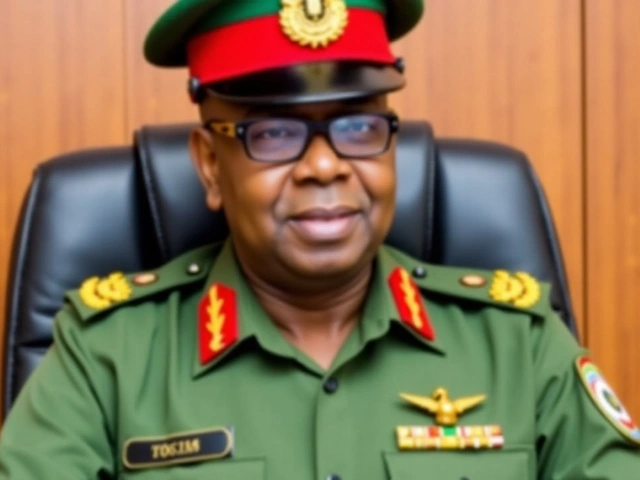

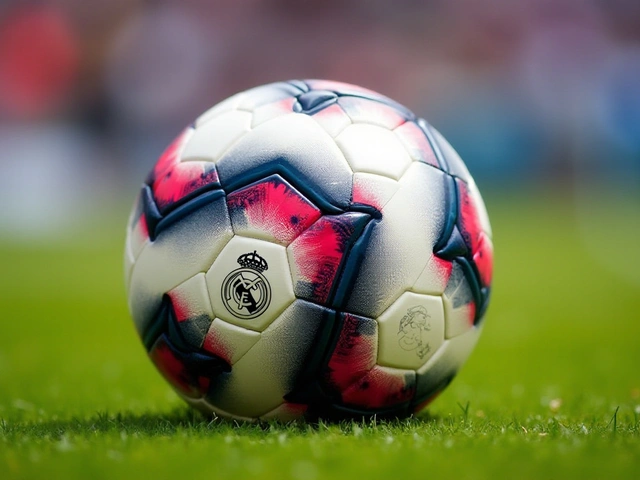

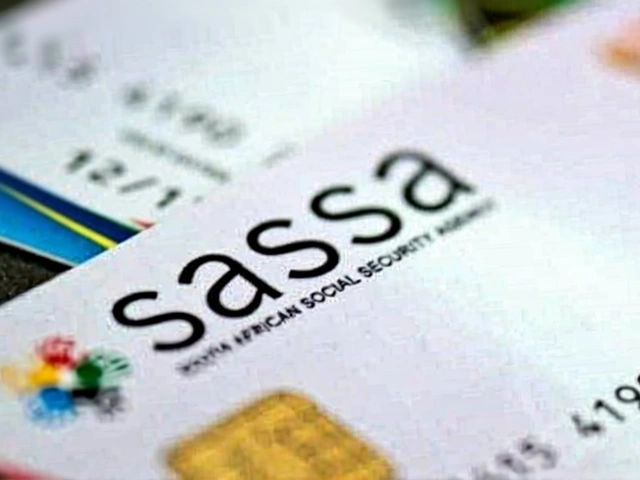
Tanvi Shrivastav
October 13, 2025 AT 23:09 PMAh, the ever‑so‑elegant ballet of power‑play in Antananarivo, where generals waltz into prime‑ministerial shoes and the youths merely tap‑dance in protest :).
Rashid Ali
October 15, 2025 AT 02:55 AMReading this cascade of events feels like watching a storm trying to find its eye, and yet there’s a flicker of hope that the right conversation can calm the winds. The youth’s energy is not just noise; it’s a pulse that any serious government must learn to sync with. When water pipes burst and lights flicker, people naturally turn to the streets, because the system has failed them at the most basic level. A military figure stepping into politics can be a double‑edged sword, but it also opens a window for disciplined reform if wielded responsibly. Imagine a scenario where General Zafisambo uses his logistical acumen to re‑engineer the power grid, turning blackouts into a relic of the past. Simultaneously, the protest leaders could channel their digital savviness into structured dialogue, drafting actionable policy proposals. The key is mutual respect – the government listening without dismissing, and the protesters presenting concrete demands instead of vague slogans. Transparency in awarding contracts, especially those involving the Madagascar Security Academy, would rebuild trust that has been eroded over years. International partners like the World Bank can play a constructive role, but only if Madagascar demonstrates genuine commitment to good governance. A negotiated transition, as outlined, could involve a technocratic cabinet that blends civilian expertise with disciplined military oversight. If that balance is struck, the economy could rebound, tourism might revive, and mining investments could flow back in. The alternative, a spiral of repression, would only deepen the humanitarian crisis and invite sanctions. History teaches us that prolonged instability erodes not just the present but the future prospects of an entire generation. Therefore, every stakeholder – from the president to the street vendor – has a part to play in writing a new chapter for Madagascar. Let us hope the upcoming weeks become a laboratory for inclusive problem‑solving rather than a battlefield of brute force.
Anil Puri
October 16, 2025 AT 06:42 AMSure, throwing a general into the prime‑minister’s seat might look like a clever power move, but historically it often ends up as a façade for deeper militarisation.
poornima khot
October 17, 2025 AT 10:29 AMWhile the unrest persists, it is crucial for every citizen to stay united and channel their frustration into constructive advocacy; only then can lasting reforms emerge.
Mukesh Yadav
October 18, 2025 AT 14:15 PMDon't be fooled by the pretty words; behind the curtains there's a shadow network pulling strings, and the security firms are just the visible tip of an invisible hand.
Bhaskar Shil
October 19, 2025 AT 18:02 PMFrom a systems‑integration perspective, the appointment introduces a hierarchical control layer that could streamline decision‑making pipelines, provided the feedback loops from civil society are adequately instrumented.
Halbandge Sandeep Devrao
October 20, 2025 AT 21:49 PMIt is, in essence, a dialectical convergence wherein the militaristic praxis intersects with civil governance, engendering a potential synthesis that demands rigorous ethical scrutiny.
One You tea
October 22, 2025 AT 01:35 AMThe prevailing narrative reeks of superficial theatrics, masking an entrenched oligarchy that thrives on perpetual instability.
Hemakul Pioneers
October 23, 2025 AT 05:22 AMIndeed, the surface may glitter with drama, yet beneath lies a profound yearning for equitable stewardship of the nation’s resources.
Shivam Pandit
October 24, 2025 AT 09:09 AMFriends, this is a pivotal moment for Madagascar-let's keep the dialogue open, stay hopeful, and push for transparent solutions!
parvez fmp
October 25, 2025 AT 12:55 PM🔥🔥 The streets are lit, the chants echo, and the world watches-let's hope this fire fuels change, not chaos! 😎
s.v chauhan
October 26, 2025 AT 15:42 PMWe need to act now; delay only hands more power to those who profit from the chaos.
abhinav gupta
October 27, 2025 AT 19:29 PMClearly the solution is a military‑run cabinet because democracy obviously failed.
Chandan Pal
October 28, 2025 AT 23:15 PMAnyone else wonder how the international aid packages will be impacted if the protests keep growing? 🤔
SIDDHARTH CHELLADURAI
October 30, 2025 AT 03:02 AMStay strong, folks! Unity and perseverance will guide us through these tough times 😊
Deepak Verma
October 31, 2025 AT 06:49 AMThe whole thing smells like a badly rehearsed drama.